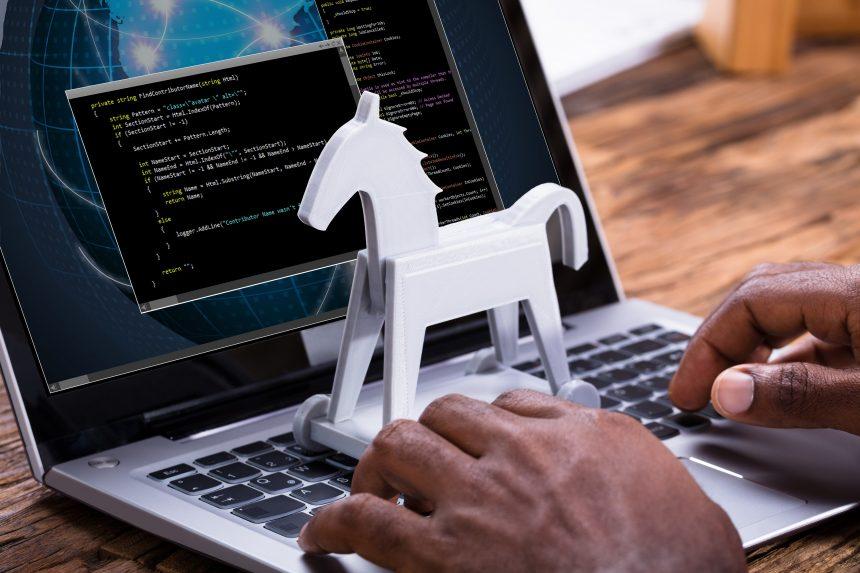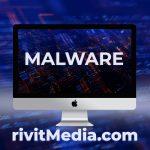The NonEuclid Remote Access Trojan (RAT) is a sophisticated piece of malware written in C# that provides cybercriminals with unauthorized control over victims’ systems. NonEuclid employs advanced techniques to avoid detection, escalate privileges, and encrypt files. This article explores the key features of NonEuclid, its symptoms, distribution methods, and damage. Additionally, a detailed removal guide and preventive measures are provided to help users safeguard their systems against such threats.
Threat Summary
| Aspect | Details |
|---|---|
| Name | NonEuclid Remote Access Trojan |
| Threat Type | Remote Access Trojan (RAT) |
| Detection Names | Avast (Win32:Malware-gen), Combo Cleaner (Gen:Variant.Bulz.880804), ESET-NOD32 (A Variant Of MSIL/Agent.DBK), Kaspersky (HEUR:HackTool.MSIL.Alien.gen), Microsoft (Trojan:MSIL/AgentTesla.LQL!MTB) |
| Symptoms | Minimal visible symptoms; operates stealthily to avoid detection |
| Damage | Data and financial loss, identity theft, and risk of further infections |
| Distribution Methods | Infected email attachments, malicious ads, social engineering, and pirated software “cracks” |
| Danger Level | High |
Download SpyHunter Now & Scan Your Computer For Free!
Remove this and any other malicious threats to your system by scanning your computer with SpyHunter now! It’s FREE!
Detailed Features of NonEuclid
- Anti-Detection Mechanisms
- AntiScan: Modifies system settings to make Windows Defender ignore malware-related files and folders.
- ASMI Bypass: Alters system memory to bypass Windows Defender’s AMSI, allowing malicious code to run undetected.
- Process Monitoring and Protection
- Monitors for processes like “Taskmgr.exe” and “ProcessHacker.exe” to prevent termination.
- Marks its process as “critical” to resist manual shutdown.
- Virtual Machine Detection: Checks for VM-specific memory objects to evade analysis and testing environments.
- Access to Multimedia Devices: Detects and interacts with multimedia devices such as cameras for potential data capture.
- Persistence: Creates scheduled tasks to ensure it runs at regular intervals, even after system reboots.
- Privilege Escalation and File Encryption
- Gains higher privileges by modifying the Windows registry.
- Uses AES encryption to lock files, renaming them with the extension
.NonEuclid.
How NonEuclid Spreads
NonEuclid uses various methods to infect systems:
- Infected Email Attachments: Cybercriminals send emails with malicious attachments disguised as legitimate files.
- Malicious Advertisements: Online ads may redirect users to websites hosting the RAT.
- Social Engineering: Fake messages or prompts trick users into downloading the malware.
- Software Cracks: Pirated software or “cracks” often contain embedded malware.
Removal Guide Removal
Download SpyHunter Now & Scan Your Computer For Free!
Remove this and any other malicious threats to your system by scanning your computer with SpyHunter now! It’s FREE!
- Download SpyHunter
- Install it by following the on-screen instructions.
- Run a Full System Scan
- Open SpyHunter and initiate a full system scan.
- The tool will identify NonEuclid and other threats present on the system.
- Review Detected Threats: Examine the list of detected threats to confirm the presence of NonEuclid.
- Remove Detected Threats: Click “Fix Threats” to remove NonEuclid and other malicious components.
- Reboot Your System: Restart your computer to complete the removal process.
Preventive Measures
To prevent future infections by NonEuclid or similar malware, consider the following:
- Use Reliable Security Software: Install and regularly update a trusted antivirus solution.
- Avoid Suspicious Links and Attachments: Do not click on links or open attachments from unknown or untrusted sources.
- Keep Software Updated: Regularly update your operating system and applications to patch security vulnerabilities.
- Enable Firewall Protection: Use a firewall to block unauthorized access to your system.
- Practice Safe Browsing: Avoid visiting suspicious websites or downloading software from unverified sources.
- Backup Your Data: Maintain regular backups of your important files to minimize damage in case of ransomware attacks.
Conclusion
NonEuclid RAT exemplifies the growing sophistication of modern malware. Its ability to evade detection, persist on infected systems, and encrypt critical files poses a significant threat to individuals and organizations alike. By understanding its features and enforcing robust cybersecurity measures, users can minimize the risk of infection and protect their data from malicious actors.
Download SpyHunter Now & Scan Your Computer For Free!
Remove this and any other malicious threats to your system by scanning your computer with SpyHunter now! It’s FREE!





